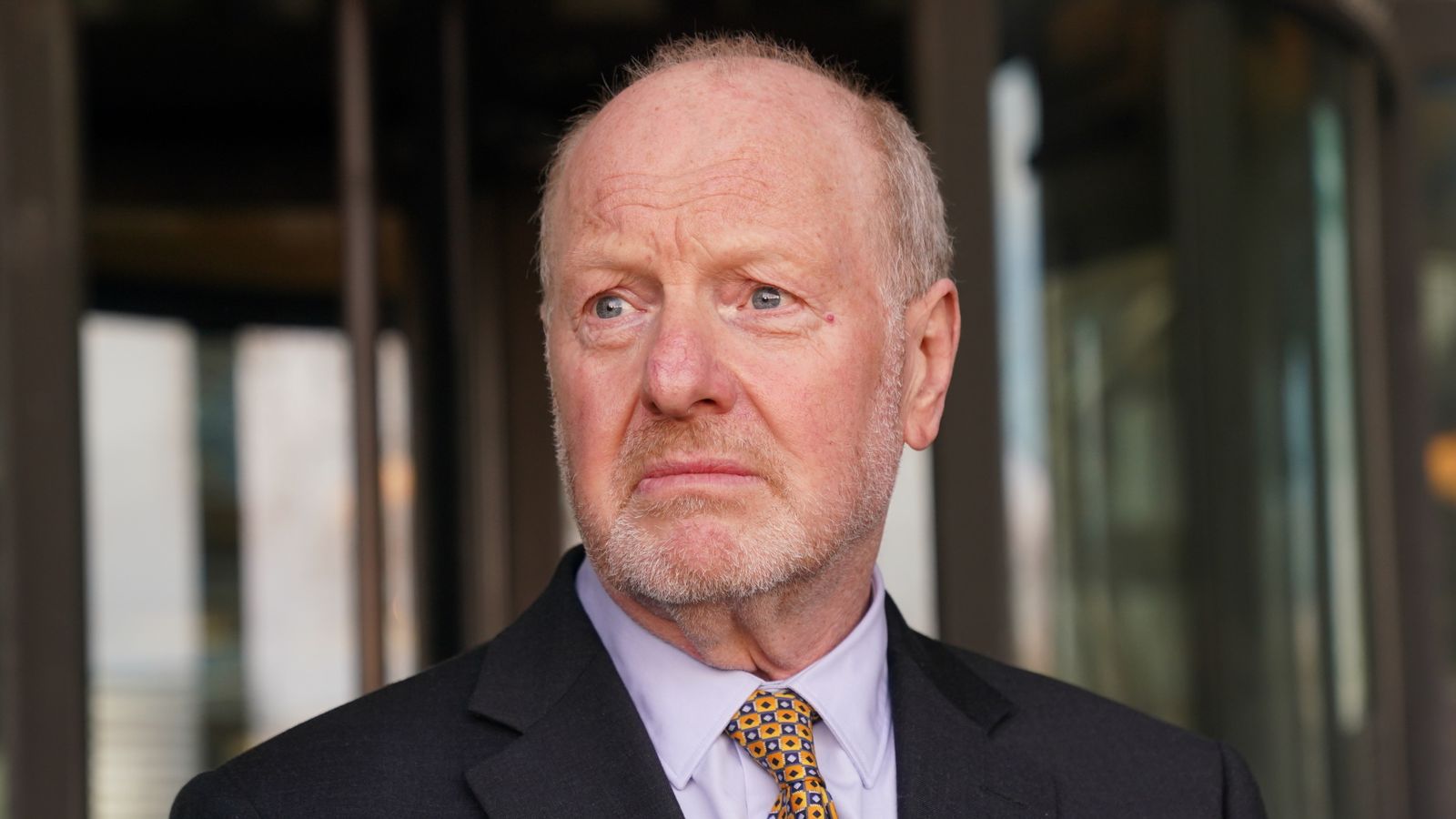
When we arrived in Egoli, a squatter settlement in the Cape Flats in South Africa, the dark tar marks of tyres burnt in protest still blackened the road.
Initial glares of suspicion only faded when we were greeted and welcomed by community leader Abraham Fransman.
“Me and my community have been living in this informal settlement for the past 28 years with little basic service.
“This doesn’t let us feel good with the politicians because right from 1994 – when the first election was out – they were saying a better life for all.
“But still, after 28 years, there’s no better life.” says 59-year-old Abraham.
Read more:
Everything you need to know about the South Africa election
As we spoke, women gathered branches and scraps of wood to make fires to cook and heat their homes.
The community had tapped into the power grid illegally and been disconnected.
Their shacks sit on private land cut off from city infrastructure and basic services.
They have been handed eviction notice after eviction notice since 2000, as ownership of the property changes hands.
“We mustn’t vote because it doesn’t count. We don’t see democracy. We don’t see freedom. We see nothing. We only see suffering more suffering and more suffering.”
Read more:
Former South African president banned from running in election
South Africa says Gaza is at ‘new and horrific stage’
South African footballer shot dead in carjacking
The elections are days away but there are few party posters here.
One lonely sign for the ruling African National Congress (ANC) party and none for the main opposition party, the Democratic Alliance (DA), that runs the province and city.
The DA slogan “Western Cape Works” would stick out like a sore thumb – nothing here works.
“You can’t bring change. No party, not even a new party or a party you see for many years,” says Chevonne, a mother of five.
“This is the only time they come out with empty promises and as soon as they get your cross (on the ballot), they’re gone.”
In Nyanga, one of the oldest black townships in Cape Town, people are approaching the wet winter months with more fear than any post-election political upheaval.
The damage from past winter rain still marks the walls of many homes.
“We are not happy about the voting – the voting can come. But we’re not happy about it because look, I’m staying in a hole, ” says 63-year-old Younes pointing to her sunken house.
“When it’s raining, all the water is coming in here.”
As we stood in Nyanga’s streets, janitors that work for private contractors hired by the city to deliver sanitation services blast music as they empty out bucket toilets.
One of the janitors is a 22-year-old called Phuthuma.
She says life is hard and children do not have open spaces to play.
I ask her how she feels when she goes to the centre of Cape Town.
There is a silence before she reveals that she has never been.
In the distance, a cloud covers that part of Cape Town nestled in Table Mountain.
The postcard perfection that people travel thousands of miles from all over the world to visit, but the city’s own residents cannot access.
“Cape Town is historically so beautiful and working-class people do not enjoy this,” longtime community activist and independent MP candidate Zackie Achmat tells us in the Company’s Garden.
It is the oldest garden in South Africa and a heritage site in the heart of Cape Town with an astonishing view of Table Mountain.
“The mountain looks different from different parts of the city. It looks further and further away as you move further away, and it looks impossible to get to and it is impossible to get to because there’s no transport. The cost of living is so high. The cost of transport is phenomenal.
“Spatial injustice has grown under the ANC in every way and under the Democratic Alliance in the city.”

















